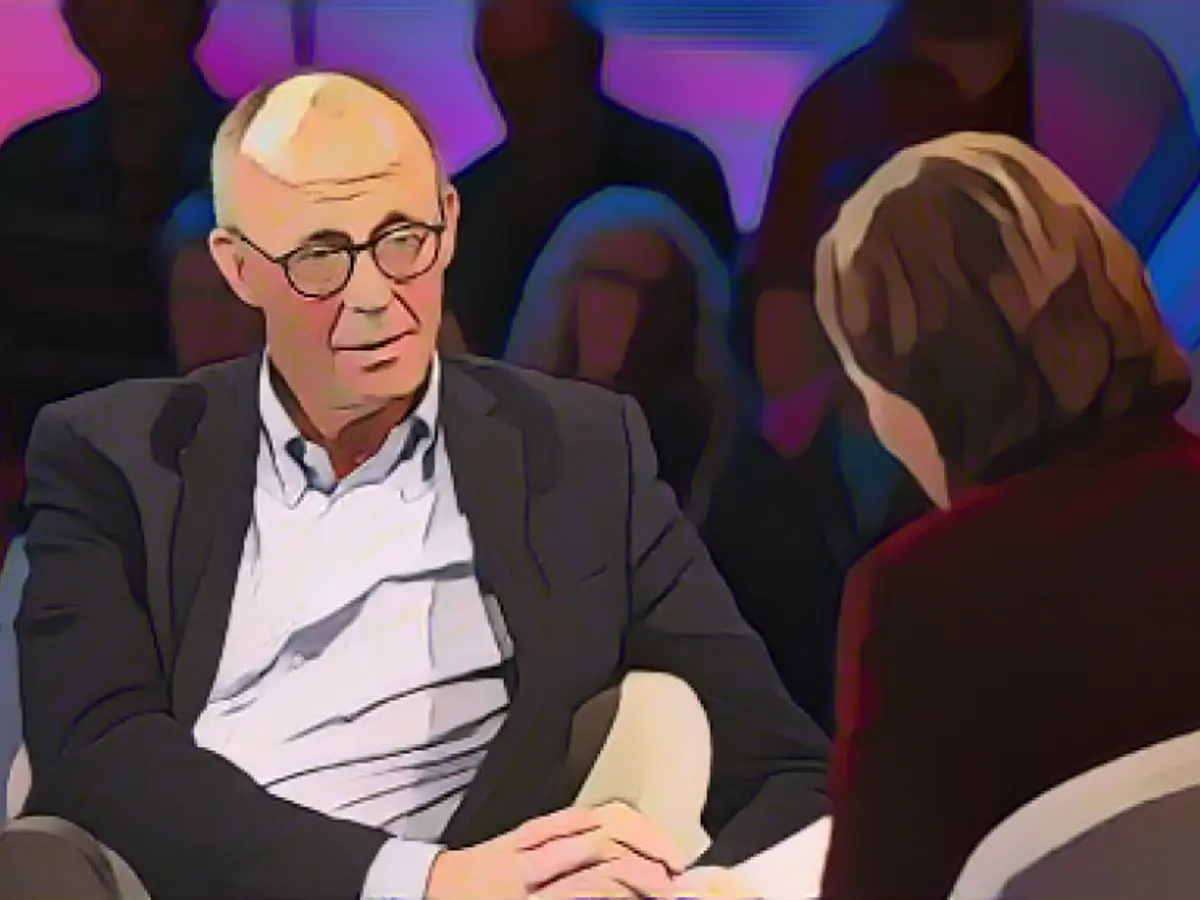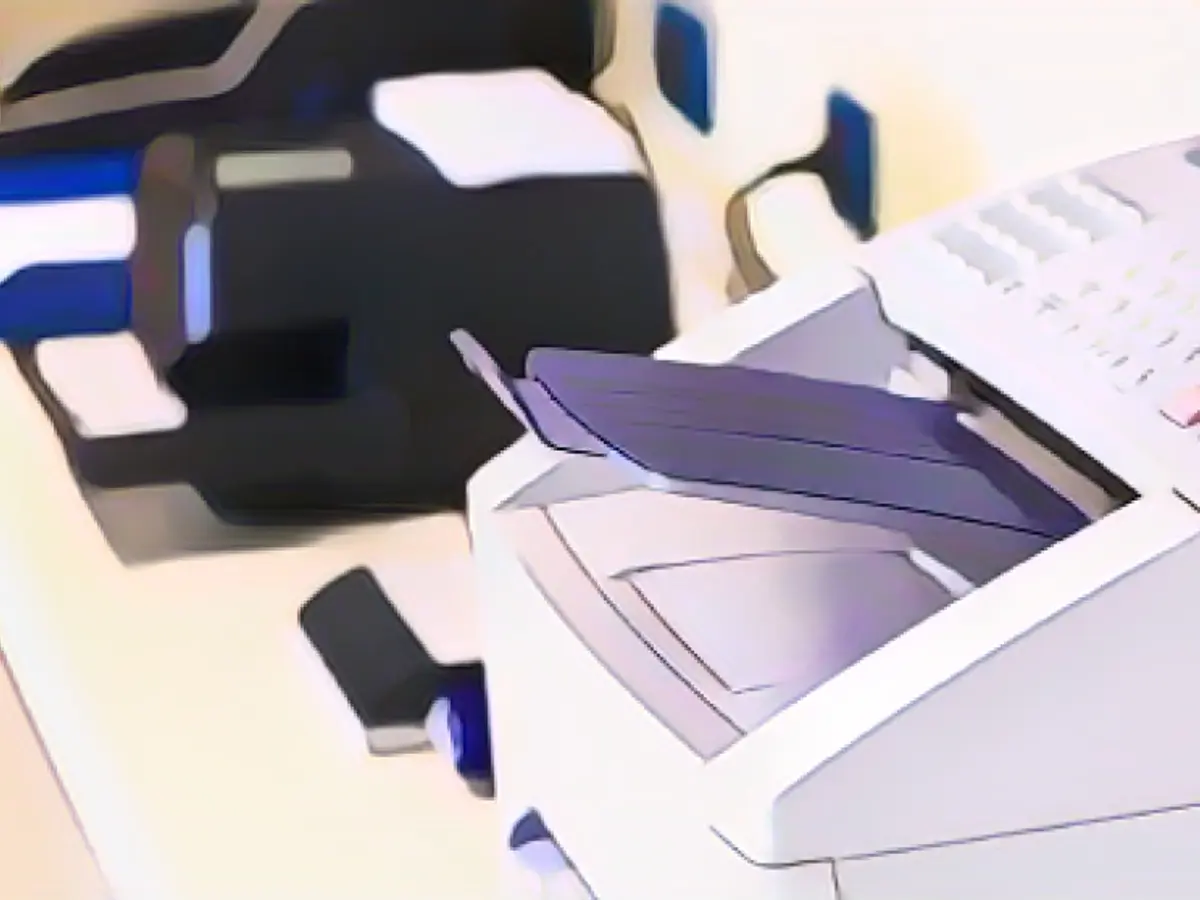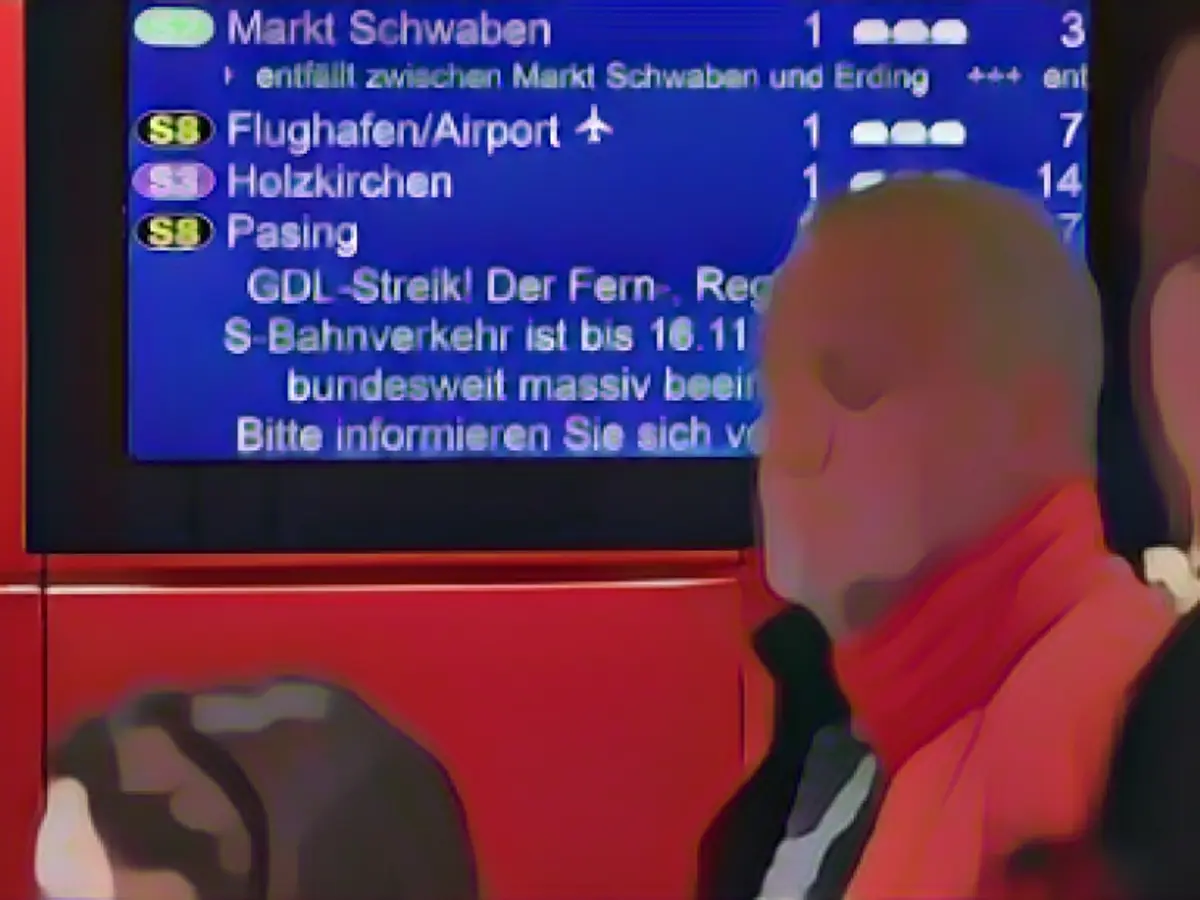Budget Struggles in Germany and Merz's Proposals
The government is on the brink of financial ruin, teetering on the verge of bankruptcy. The dire financial situation could lead to a catastrophic split within the government. The only way to avoid this impending disaster is by tightening the purse strings and saving wherever possible.
CDU's opposition leader Friedrich Merz presented his suggestions for potential cost savings to Habeck, Scholz, and their colleagues, bluntly stating, "Things aren't what they used to be anymore."
"Halt for the Entire Economy"
Merz's primary concerns were the basic child benefit, the heating law, and an increased citizen's income. He argued that the significant increase in citizen's income at the beginning of the year contravenes the "wage gap requirement" and serves as a "brake for the entire economy."
The projected expenditure for citizen's income in 2023 is an astronomical 25.9 billion euros. To put it into perspective, in 2022, the expenditure on Hartz IV, a predecessor to citizen's income, was only 22.2 billion euros.
Introducing basic child protection, including the associated red tape, is currently considered "embarrassingly foolish." In fact, a whopping 2.4 billion euros is planned for the controversial measure, starting from 2025.
Merz also raised concerns over the proposed subsidization of heat pumps. He believes that the associated public sector costs would be substantial.
Every citizen renovating a five-year-old home receives a subsidy ranging from 25% to 40% for installing a new heat pump - creating a considerable financial burden on the taxpayer.
On the other hand, Economics Minister Robert Habeck (Greens) expressed his belief that climate protection and modernization measures should continue to be prioritized. Somehow, however, he didn't elaborate on how this could be achieved without incurring additional costs.
Merz cautioned against increasing taxes further in Germany, which is already acknowledged as a high-tax nation. He warned against pushing it too far.
- Habeck from the Greens asserts the importance of maintaining climate protection and modernization measures, even in times of financial constraint.
- Merz criticized the proposed subsidization of heat pumps, arguing that the associated costs for the public sector would be substantial.
- Merz recommended cutting the citizen's income increase due to its effects on the "wage gap requirement" and as a "brake for the entire economy."
- Merz views the introduction of basic child protection, accompanied by an extraordinary bureaucratic load, as an absurd notion, given the additional expenditure of 2.4 billion euros planned for the measure from 2025 onwards.
- Merz emphasizes the need for caution when considering further tax increases in Germany.
Insights:
Germany has been grappling with the need to balance necessary investments in climate protection and modernization with current fiscal policy constraints. Various solutions have been proposed:
- Raising Debt: The majority of Germans supports raising new debt to finance essential investments. Parties such as the SPD and the Greens advocate for the debt brake to be loosened to enable increased public investment in infrastructure and the green transition.
- Savings in Other Budget Areas: Safering in other budget areas could cover additional investments, but the space for spending cuts is limited. Ninety percent of the federal budget is allocated to fixed expenditures like pensions and salaries.
- Tax Rebates and Cuts: The SPD proposes a 10% tax rebate for corporate capital expenditures in German assets to stimulate investment and consumption. The FDP suggests reducing the corporate tax rate below 25% and cutting the value-added tax for restaurant food to 7%.
- Reform of Fixed Expenditures: The CDU/CSU aims to reform the Bürgergeld welfare program to encourage more people to enter the labor market, potentially reducing social spending. The SPD would increase the national minimum wage to €15 per hour to help low-income workers.
- Alternative Funding Mechanisms: The Greens proposes an investment bonus of 10% for companies to stimulate investment in modernization and green technologies. The SPD suggests lowering income tax for most households and increasing taxes on the super-rich and re-introducing a wealth tax to offset plans to lower the sales tax for groceries.
- Gradual Reintroduction of the Debt Brake: Experts suggest a phased reintroduction of the debt brake after economic crises to provide more flexibility in budget management during times of economic stress.






